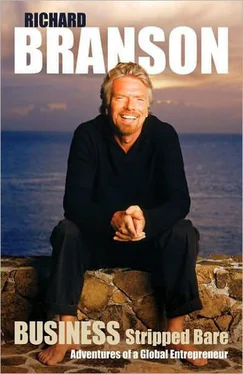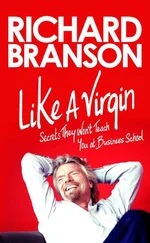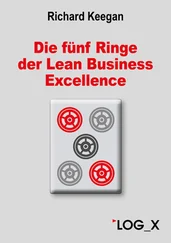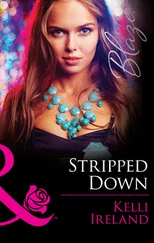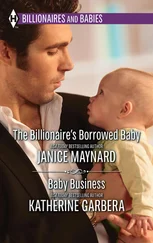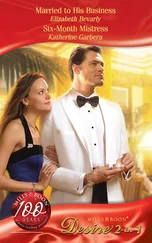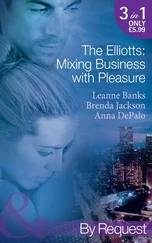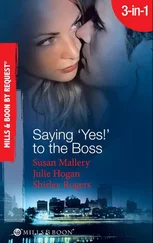Virgin is dedicated to developing new renewable fuels and energy sources and greener technologies in rail, air and space to cut all our carbon footprints. It is responding to the current crisis decisively, the only way a business can: by making things. Virgin is trying to do a credible job for the environment. By making better things, it’s making things better — and in this book, I hope to show you how.
I’ve enjoyed an incredible life — and I hope there is much more to come. I’m planning to work till I drop and I’ll continue to challenge myself as long as I enjoy good health and still have my marbles. And I hope that the fortune that I have been granted can bring enormous opportunities to other people and make a real difference.
I hope you find Business Stripped Bare a useful read. My experiences may even shake up your ideas about what business is. They’ve certainly shaken up mine.
Find Good People — Set Them Free
’Mr Richard! Mr Richard! Do you have a minute, please?’
I was visiting Ulusaba, our private game reserve, close to the stunning Kruger National Park in South Africa. It’s an enchanting piece of bush and, thanks to Karl and Llane Langdon, a well-managed one. The previous owners had planned to fence it in — all 2,060 hectares of it — to protect the local wildlife from poachers. We decided, on the contrary, to take the advice of our rangers, and have allowed our leopards, lions, elephants, cheetahs and rhinos to move and migrate freely between our land and the neighbouring Kruger.
The reserve had cost me nearly $6 million in 1999 — a testament to the salesmanship of the South African president, Nelson Mandela, who persuaded me to keep faith with his homeland. Even when times have been hard for the Virgin Group and I needed liquid cash, I could never bring myself to sell it.
‘Mr Richard!’
I stopped and turned round and stood there, dazzled by one of the most winning smiles I’ve seen in my life.
‘Mr Richard.’ It was a woman from the village, dressed in a KwaZulu gown of bright reds and yellows. ‘I’ve heard you are a very generous man. Can you lend me money to buy a sewing machine?’
At this time Virgin Unite, our charitable foundation, was busy at work in the villages in and around the reserve. The villagers had been walking a long way to Sand River for water that was not particularly safe to drink. So the foundation had sunk boreholes to provide the villagers with a nearby source of clean water. It taught skills, helped with the school and built a medical clinic. It created play areas for kids, and huts from which the villagers could sell their goods to tourists.
The tourists were our business too. For nearly ten years, Ulusaba has been a magical place, especially loved by people who come here to rent our upmarket lodges, one perched on the summit of a granite outcrop with stunning eagle-eye views across the bush, the other a tree house overlooking the Mabrak riverbed, where many animals come to drink and frolic.
I’ve been asked for money hundreds of times over the last thirty years, but rarely with such directness. You’ve heard of the elevator pitch? This was the elephant-pool pitch.
She told me she was a talented seamstress but that she needed cash to buy a sewing machine to get her business going.
‘So how much do you need?’
‘Three hundred dollars would be enough,’ she explained. ‘And, what is more, I’ll repay it within three months and employ six people full-time.’ The woman’s determination and ambition were fantastic. So was her focus: she knew exactly what she wanted, and why. She got her $300.
And as I walked away I said to myself: That’s money I’ll probably never see again.
I wasn’t being cynical. I simply had experience of how the odds were stacked. At Ulusaba — which means ‘place of little fear’ — I had come to know many local people who were working on the game reserve and looking after our visitors. And believe me, they have big fears. Malaria, tuberculosis and HIV/Aids stalk their daily lives.
Three months later I was invited back to the village to open some of the community projects supported by Virgin Unite, including crèches, orphans’ homes and an Aids-awareness clinic. When I got there, six women came up to me, and gave me a gift of the most exquisite cotton pillows and tribal clothes which they had made. And, to complete my surprise, they returned the $300.
But where was the original entrepreneurial seamstress? I asked.
‘Mr Richard, she is so sorry she can’t be here personally to see you. She is off to the market selling the products,’ they told me.
I’ve thought of her often since that day: a confident, direct, intelligent woman, using a sewing machine to better her own and others’ lives. Never mind Dragons’ Den : if you want to meet entrepreneurs, come to Africa. It’s a continent full of opportunities for the creation of wealth, enterprise and future prosperity.
Since the mid-1970s, the economist Professor Muhammad Yunus has been saying much the same thing about the women of Bangladesh. But how do we foster entrepreneurism in communities that, whatever their potential, have virtually nothing?
Muhammad Yunus started his Grameen Bank as a practical economics project in 1976. He won the Nobel Peace Prize in 2006 for pioneering an economic system in which small, low-interest loans are extended to people who are unable to obtain a loan from a traditional bank. Grameen’s rule of thumb is to keep the interest rate as close as possible to the prevailing market rate in the commercial banking sector rather than moneylenders’ exorbitant rates. It has transformed the lives of millions and the bank now has 2,400 branches, and 7.5 million borrowers. The default rates — at 2 per cent — are lower than those of any other banking system. Every year, 5 per cent of Grameen borrowers move out of poverty. His work has spawned a global movement.
Muhammad is a proponent of ‘social business’. He said in an interview with the Santa Barbara Independent :
Ordinary businesses are aimed at making money… there is no consideration of how people benefit, it is all about making profits. Social business, on the other hand, is all about social benefits, not personal gain. Profits are important to social businesses, which seek to sell products at prices that make it self-sustaining. A social business is not a charity — but profits are not its ultimate goal. When a social business turns a profit, the original investors are repaid, but the rest of the profits stay with the company in order to achieve its long-term social goal of helping the poor.
His view is that many of the problems of the world remain unresolved because capitalism is poorly understood and poorly practised. The issue, he says, is not in the capitalist system itself, but in the hash that people repeatedly make of it. He completely rejects the common view, that capitalism is all about the bottom line.
He says: ‘In this narrow interpretation we create a one-dimensional human being to play the role of entrepreneur. We insulate him from other dimensions of life, such as religious, emotional, political dimensions… Everyday human beings are not one-dimensional entities, they are excitingly multidimensional and indeed very colourful.’
Muhammad thinks capitalism can — and should — enrich the whole person.
I’m not good at theory. Almost everything I’ve learned, I’ve learned by doing. However, Muhammad’s opinions excite me. They confirm a lot of the gut feelings I’ve developed about business over the years. And topping my list of gut feelings is this: business has to give people enriching, rewarding lives, or it’s simply not worth doing .
Читать дальше
